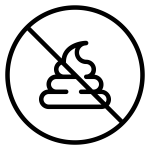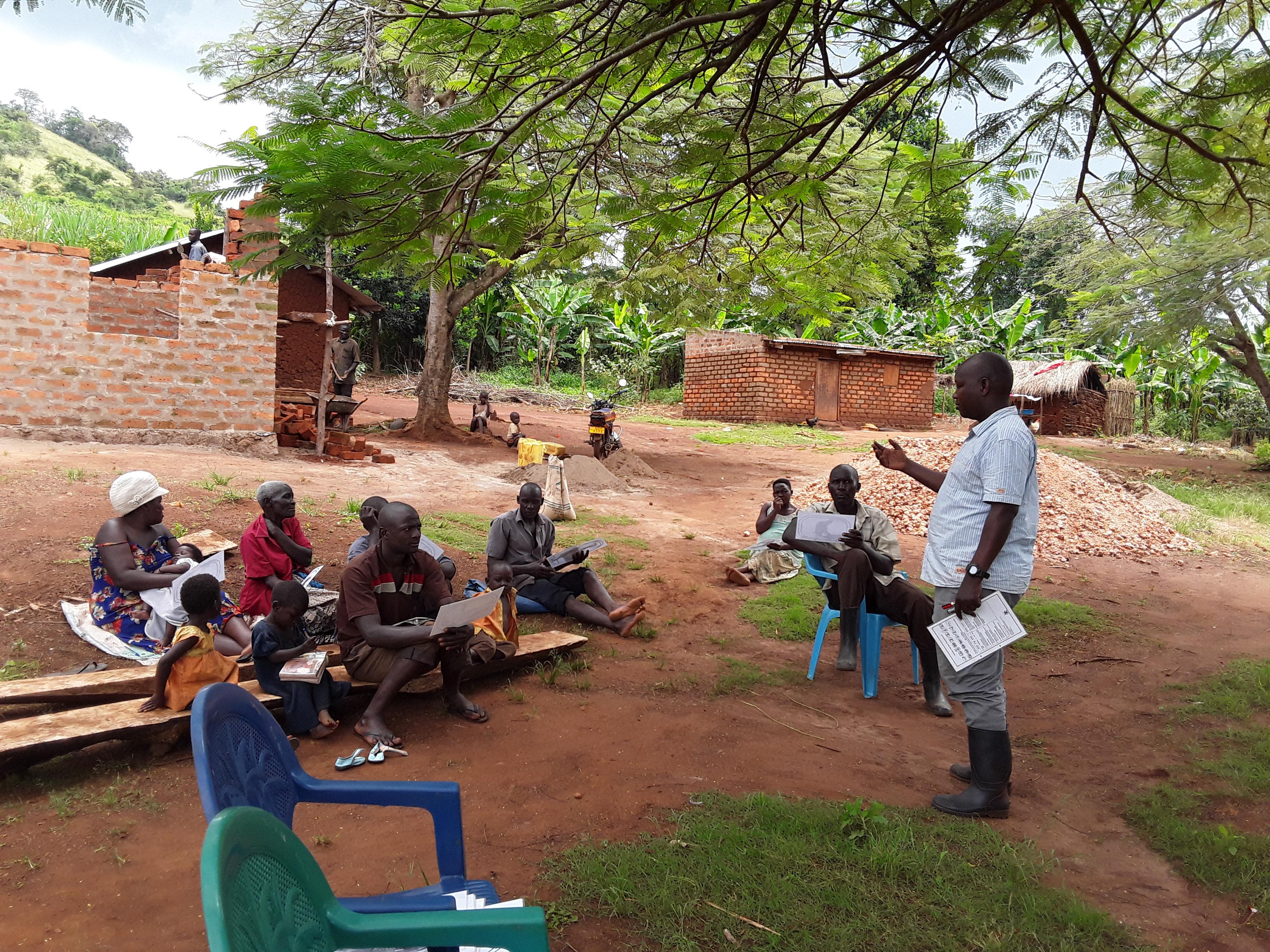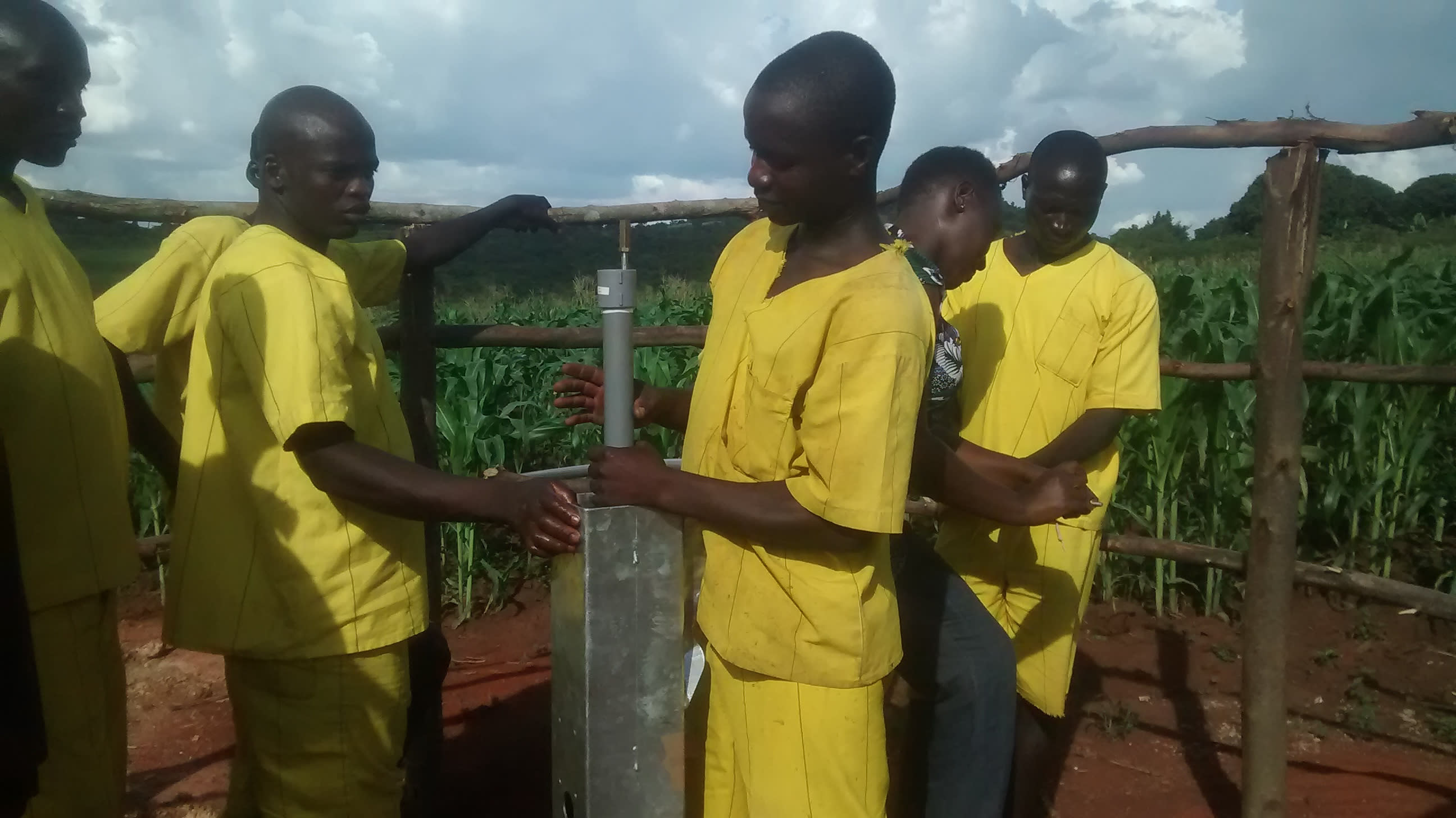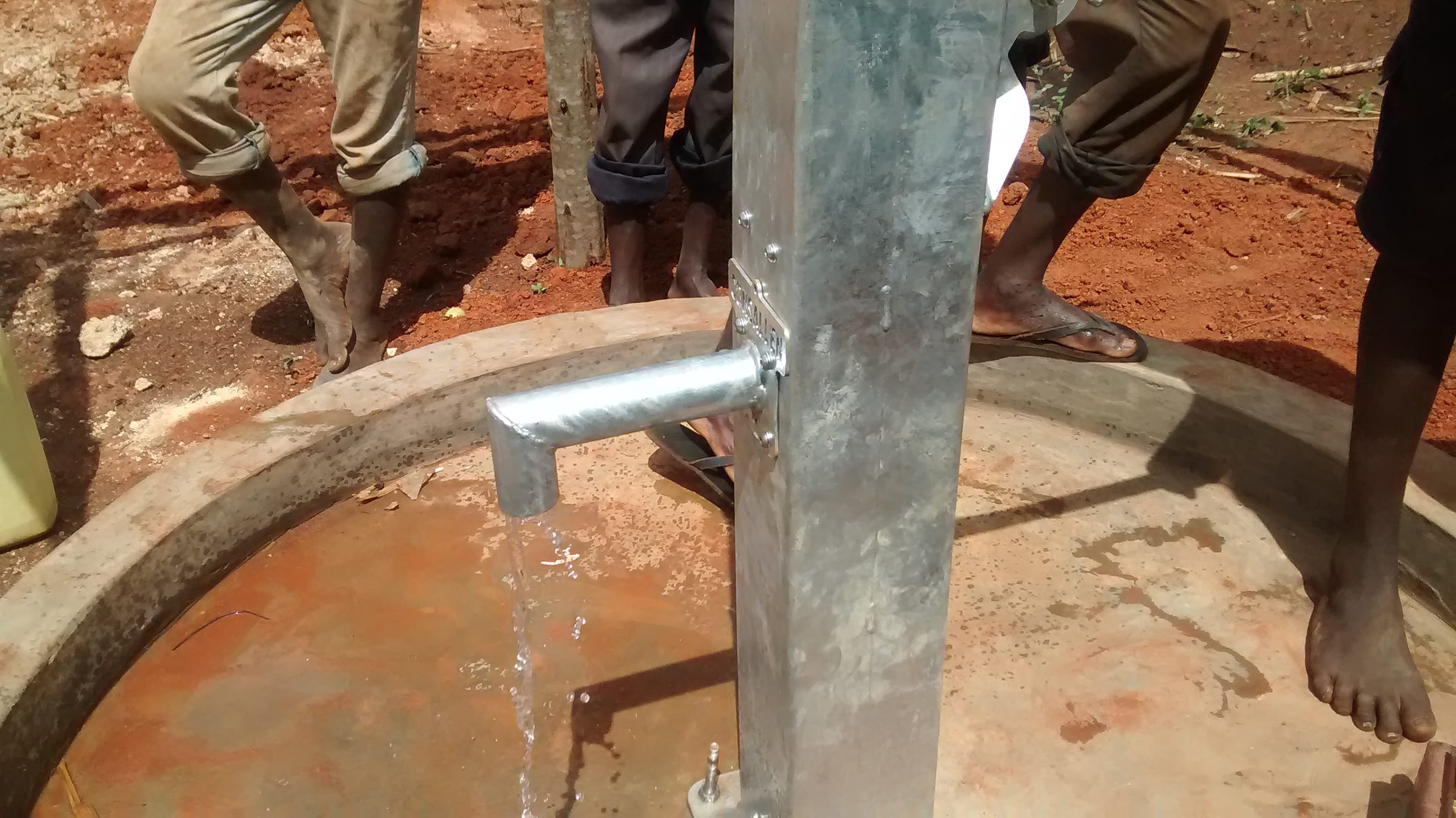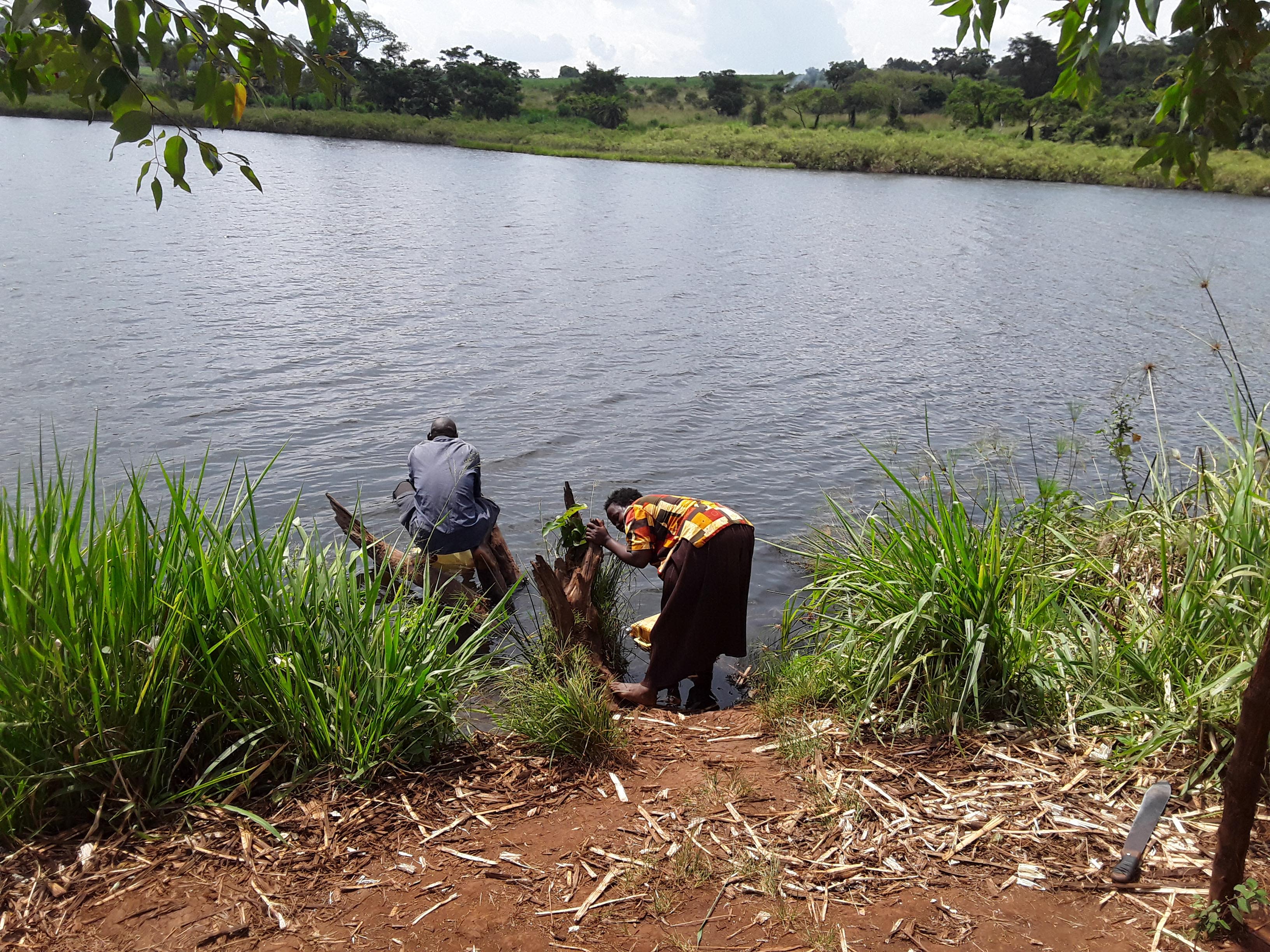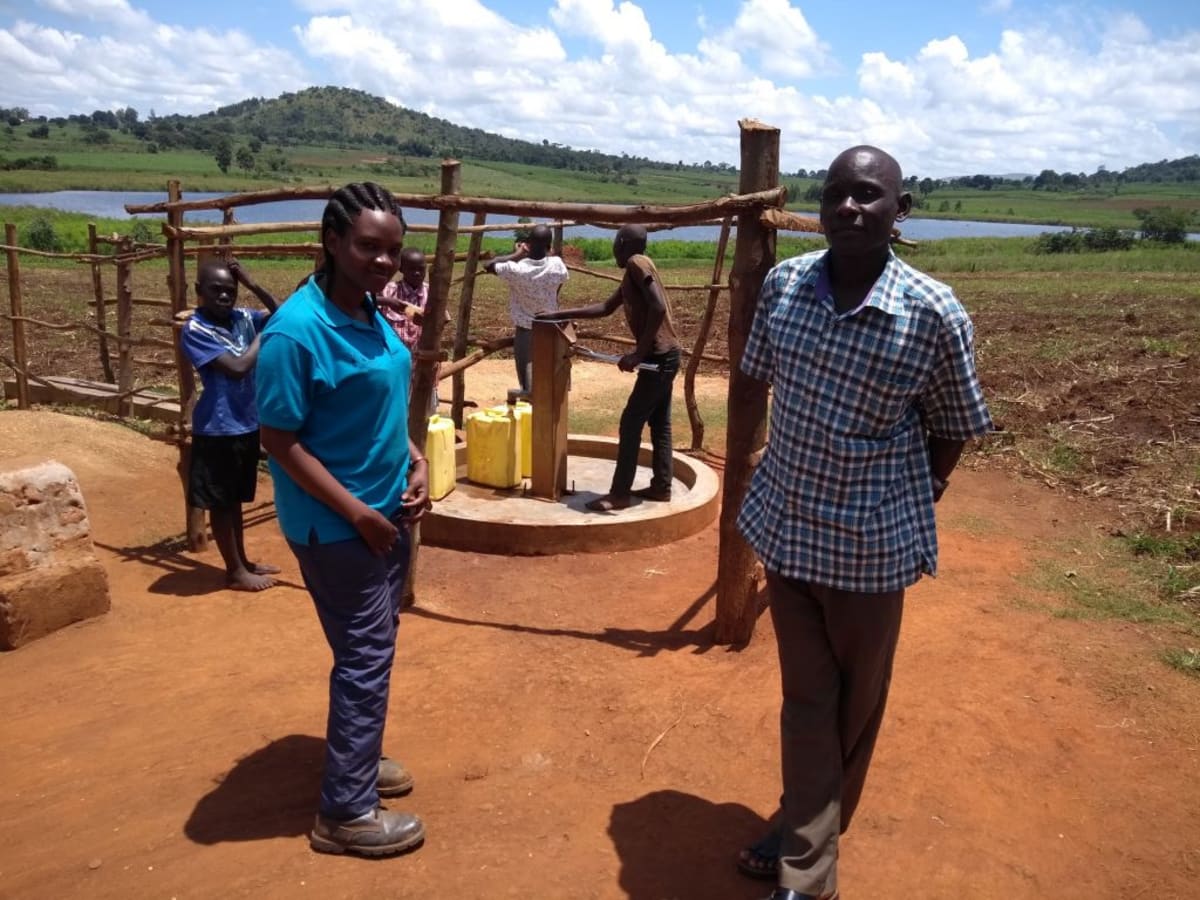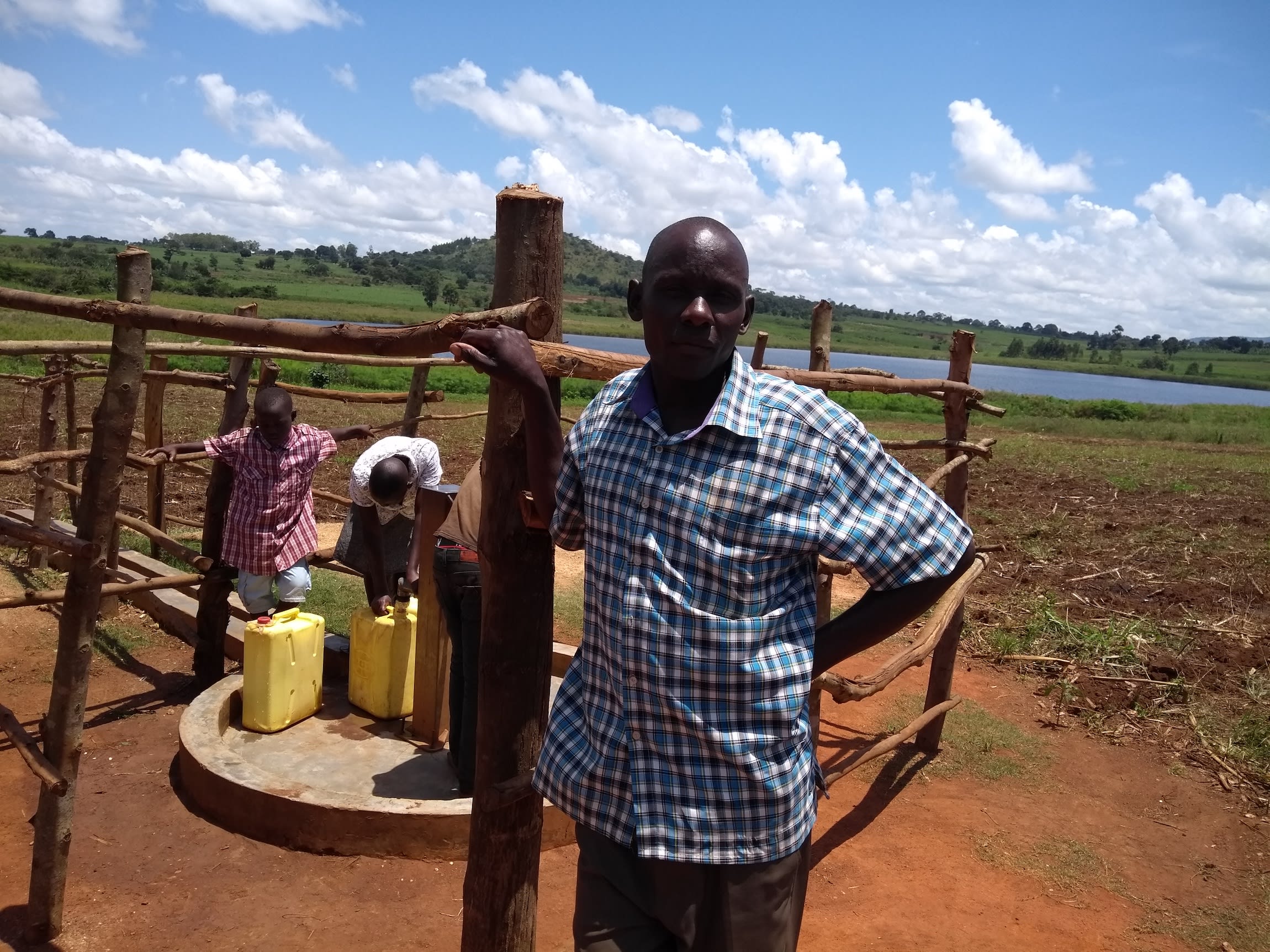Most members of this community are farmers who grow water crops like sugarcane and bananas. They wake up at 6am to go and milk their cows, they sell or trade the milk for other things their families need. They're then on the farm from 7am until midday when it's too hot.
After farming, they look for other ways to earn money. Men often transport people from one place to another on motorcycles for money. They are commonly known as 'boda bodas' in Uganda. Others go take their animals out to graze, while some own small shops in the trading center that keep them busy. The women stay at home to do domestic work, garden, and look after children.
Community members work together in their gardens and come together for social events. There is a great sense of unity and belonging here.
Water
Unfortunately, they're also united by their struggle with water scarcity, suffering a lot from water-related diseases.
The main source of water here is a huge river. Community members step through the reeds and wade into the water to fill their containers. It's impossible to know how many sources of contamination there really are since the surface water stretches through an extensive area. Animals come and go, children swim, and rainwater washes contaminants down the riverbanks into the water.
It's not rare to hear of a small child losing their life in the stretches of this deep water source.
This water is brought home for drinking, cooking, cleaning, and irrigation purposes. Typhoid is a reality for the hundreds of people who rely on this open water source.
Sanitation
Less than half of households have pit latrines, and it's obvious that families are not prioritizing sanitation. It's obvious that people are relieving themselves elsewhere, behind buildings, in the bushes, or amidst the crops on a farm, because of such low latrine coverage. The more this happens, the greater amount of dangerous germs spread around the community, even into food or drinking water.
Here’s what we’re going to do about it:
Training
Training’s main objectives are the use of latrines and observing proper hygiene practices, since these goals are inherently connected to the provision of clean water. Open defecation, water storage in unclean containers and the absence of hand-washing are all possible contaminants of a household water supply. Each participating village must achieve Open Defecation Free status (defined by one latrine per household), prior to the pump installation for a shallow hand-dug well.
This social program includes the assignment of one Community Development Officer (CDO) to each village. The CDO encourages each household to build an ideal homestead that includes: a latrine, hand-washing facility, a separate structure for animals, rubbish pit and drying rack for dishes.
We also implement the Community Led Total Sanitation (CLTS) approach with each of our village partners. This aims to improve the sanitation and hygiene practices and behaviors of a village. During these sessions, village leaders naturally emerge and push the community to realize that current practices of individual households – particularly the practice of open defecation– are not only unhealthy, but affect the entire village. CLTS facilitates a process in which community members realize the negative consequences of their current water, sanitation and hygiene behaviors and are inspired to take action. Group interactions are frequent motivators for individual households to: build latrines, use the latrines and demand that other households do the same.
Hand-Dug Well
The community will participate in excavating and constructing the water source. In the meantime, the aim is that all households own an improved latrine. Many households do not use a latrine but use the bush. Due to open defecation, feces are spread all over the village. This leads to waterborne diseases and contamination of groundwater and surface water. Our aim is that the community is able to live a healthy life free of preventable diseases. We endeavor that at the end of our presence in the community, people will have both access to sustainable, clean water and access to sanitation. We have now organized families to form digging groups for latrine construction, and empowered them with tools to use.
Actual well construction will take four to six weeks if there are no challenges. The well will be lined with bricks and sealing clay, and finished with a Consallen pump.
This project is a part of our shared program with The Water Trust. Our team is pleased to provide the reports for this project (formatted and edited for readability) thanks to the hard work of our friends in Uganda.

 Protected Dug Well
Protected Dug Well
 Rehabilitation Project
Rehabilitation Project




